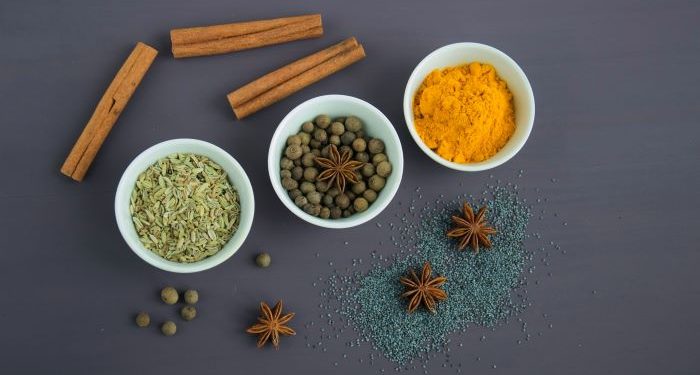In a statement issued on September 10, 2023, Prof. Mojisola Adeyeye, the Director-General of the National Agency for Food and Drug Administration and Control (NAFDAC), unveiled a bold commitment to elevate the quality of herbal products in Nigeria.
This commitment, born out of a profound dedication to safeguarding public health and promoting Nigeria’s traditional healing heritage, carries significant implications for the country’s herbal medicine industry.
Background to the Problem: The Imperative of Quality Herbal Medicine
For generations, herbal medicine has been deeply intertwined with Nigeria’s cultural and healthcare traditions. It represents a reservoir of indigenous knowledge passed down through centuries, offering remedies for a wide range of ailments.
The appeal of herbal medicine lies in its accessibility, affordability, and its alignment with the holistic principles of traditional healing.
However, despite its rich heritage and widespread use, the herbal medicine industry in Nigeria has grappled with several longstanding challenges. The primary concern revolves around the lack of standardized quality control measures.
Unlike pharmaceuticals, where rigorous testing and regulations are the norm, herbal medicines have often been prepared and dispensed without consistent quality checks. This has raised significant concerns about the safety and efficacy of these remedies.
One of the key issues is the variability in the composition of herbal products. Unlike synthetic drugs, which are manufactured with precise formulas and dosages, herbal medicines can vary significantly from batch to batch.
This variability can be attributed to a multitude of factors, including differences in plant species, growth conditions, harvesting methods, and preparation techniques.

As a result, it becomes challenging to ensure that each dose of a herbal remedy contains the intended active ingredients in the right proportions.
Furthermore, the absence of standardized quality control has made it difficult to monitor and address potential contaminants or adulterants in herbal products.
Contaminants could include heavy metals, pesticides, or microbial pathogens, all of which pose health risks to consumers. Without proper oversight, unsuspecting individuals might unknowingly consume products that are not only ineffective but also potentially harmful.
Another critical aspect of this challenge is the lack of a regulatory framework tailored to herbal medicine.
While conventional pharmaceuticals are subject to stringent regulations, herbal remedies have existed in something of a regulatory gray area.
This gap in oversight has created an environment where substandard products can proliferate, eroding trust in the efficacy and safety of herbal medicines.
These issues have had tangible consequences. Instances of adverse reactions to herbal products have been reported, and in some cases, these reactions have led to serious health complications.
Additionally, the lack of standardized quality control measures has hindered the integration of herbal medicine into the broader healthcare system, limiting its acceptance by healthcare professionals and institutions.
Recognizing these challenges, NAFDAC’s commitment to enhancing the quality of herbal products is a significant step toward addressing these long-standing issues.
By establishing GMP guidelines and providing training and support to stakeholders, NAFDAC aims to not only ensure the safety and efficacy of herbal medicines but also to elevate the industry to international standards.
This proactive approach not only safeguards the health and well-being of the public but also preserves and promotes Nigeria’s rich tradition of herbal healing.
NAFDAC’s Vision for Global Recognition: A Transformative Approach
NAFDAC’s vision for global recognition of Nigerian herbal products encompasses several key initiatives aimed at raising standards and ensuring the safety and efficacy of these remedies. Here’s a comprehensive look at these strategies:
- Good Manufacturing Practice (GMP) Guidelines for Herbal Medicine Production: Central to NAFDAC’s vision is the formulation of GMP guidelines specific to herbal medicine production. These guidelines serve as a foundational framework to standardize the manufacturing processes of herbal remedies.
By adhering to GMP, herbal practitioners can consistently produce products of high quality, with precise dosages and ingredients.
- Training and Capacity Building: NAFDAC recognizes that the successful implementation of GMP guidelines relies on the knowledge and skills of herbal practitioners.
To bridge this gap, the agency is actively organizing training sessions designed to familiarize practitioners with the intricacies of GMP. These sessions cover a spectrum of topics, including manufacturing processes, quality control, and safety standards.
- Rigorous Inspections for Compliance: After the training phase, NAFDAC will initiate rigorous inspections of herbal medicine production facilities. These inspections serve a dual purpose: to assess the preparedness of practitioners to comply with GMP guidelines and to ensure that these guidelines are being consistently followed.
- Widespread Dissemination of Knowledge: NAFDAC’s commitment to disseminating knowledge about GMP guidelines extends nationwide. The agency aims to reach over 614 herbal medicine facilities, ensuring that practitioners across the country are well-informed and equipped to meet these standards. This comprehensive approach emphasizes that adherence to GMP is a collective effort.
- Enforcement Measures: Crucially, NAFDAC has made it clear that compliance with GMP guidelines is not optional. Adeyeye stressed that standardization is essential, and practitioners who have not undergone training will not be subject to enforcement measures. This commitment underscores the agency’s resolve to elevate the entire industry.
- Support for Transitioning: Recognizing the financial constraints faced by some practitioners, NAFDAC has not only set stringent standards but also extended a helping hand.
The University of Lagos is in the process of establishing a manufacturing facility that will assist practitioners in transitioning to semi-automated filling methods at affordable rates. This move seeks to ensure that no practitioner is left behind in this transformative journey.
What Stakeholders Need to Know: Ensuring Compliance and Safety
Stakeholders in the herbal medicine industry, including practitioners, manufacturers, and consumers, need to be aware of several critical aspects of NAFDAC’s vision:
- Compliance Is Non-Negotiable: NAFDAC’s message is clear: compliance with GMP guidelines is not optional. For the safety and well-being of consumers and the elevation of the industry, practitioners must adhere to these standards.
- Facility Inspections Are on the Horizon: Practitioners should prepare for rigorous inspections of their facilities by NAFDAC personnel. These inspections are intended to assess compliance with GMP guidelines and ensure the safety and quality of products.
- Transitioning to Semi-Automated Methods: Practitioners should also be aware of the agency’s intent to phase out manual capsule filling. NAFDAC aims to cease registering companies without the required filling automation by the end of the year. This shift is crucial for safety and quality assurance.
- Collaboration and Information Sharing: As NAFDAC works diligently to elevate the herbal medicine industry, stakeholders are encouraged to collaborate and share knowledge. This collective effort will contribute to the industry’s growth and global recognition.
Looking Ahead: A Future of Quality, Safety, and Innovation
In conclusion, NAFDAC’s commitment to enhancing the quality of herbal products in Nigeria marks a transformative milestone. It not only ensures the safety and efficacy of herbal medicines but also paves the way for global recognition.
As NAFDAC progresses with the implementation of GMP guidelines and training initiatives, the herbal medicine industry in Nigeria is poised for a significant upgrade.
With NAFDAC’s efforts, Nigerian herbal products are likely to gain recognition on the global stage. The adherence to international standards will bolster the reputation of these remedies, potentially leading to export opportunities and increased acceptance worldwide.
For any enquiries please, email our editorial team at [email protected]. If you liked this story, kindly sign up for Clariform Newsletter, a handpicked selection of stories that helps you clarify things that matter and gives you clear signals about your world, delivered directly to your inbox.
Please subscribe to our YouTube channel, and join thousands of Clariform on Facebook, Twitter and Instagram.












